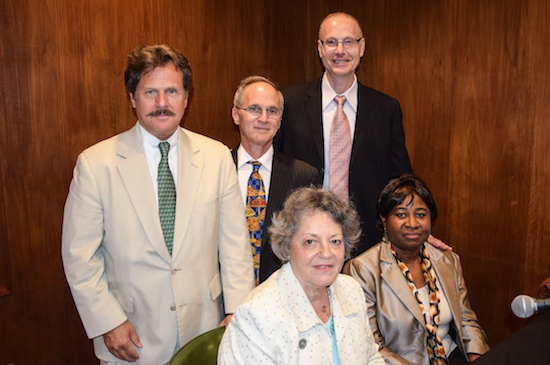Brooklyn Bar Association hosts Business Evaluation CLE

The Brooklyn Bar Association hosted a Continuing Legal Education (CLE) seminar “An Introduction to Business Valuation: What Attorneys Need to Know,” at the Bar Association on Remsen Street on Monday.
The course was designed to help new and established attorneys to better understand the situations that give rise to a business valuation and provide an introduction to the technical aspects of business valuation.
Hon. Carolyn E. Demarest, presiding justice of the Kings County Commercial Division, and Hon. Pam Jackman Brown, justice of the Queens County Supreme Court Matrimonial Part, were on hand for the lecture that was run by Dewey Golkin, Esq. of the Law Offices of Dewey Golkin and featured his brother Jeffrey Golkin, Esq., of Jeffrey Golkin Partners, and Edward F. Esposito, a certified public accountant who is accredited in business valuation.

Brooklyn Boro
View MoreNew York City’s most populous borough, Brooklyn, is home to nearly 2.6 million residents. If Brooklyn were an independent city it would be the fourth largest city in the United States. While Brooklyn has become the epitome of ‘cool and hip’ in recent years, for those that were born here, raised families here and improved communities over the years, Brooklyn has never been ‘uncool’.